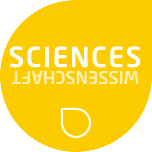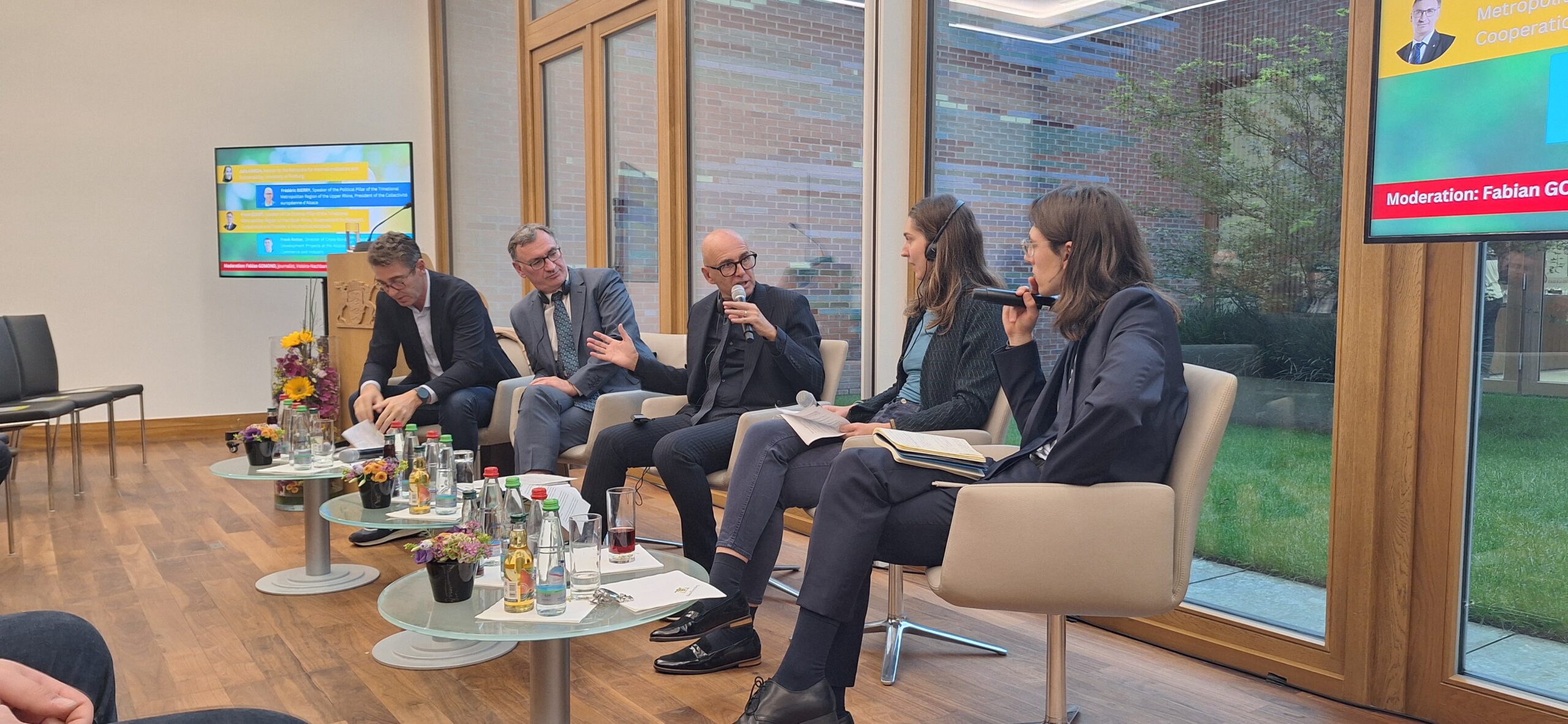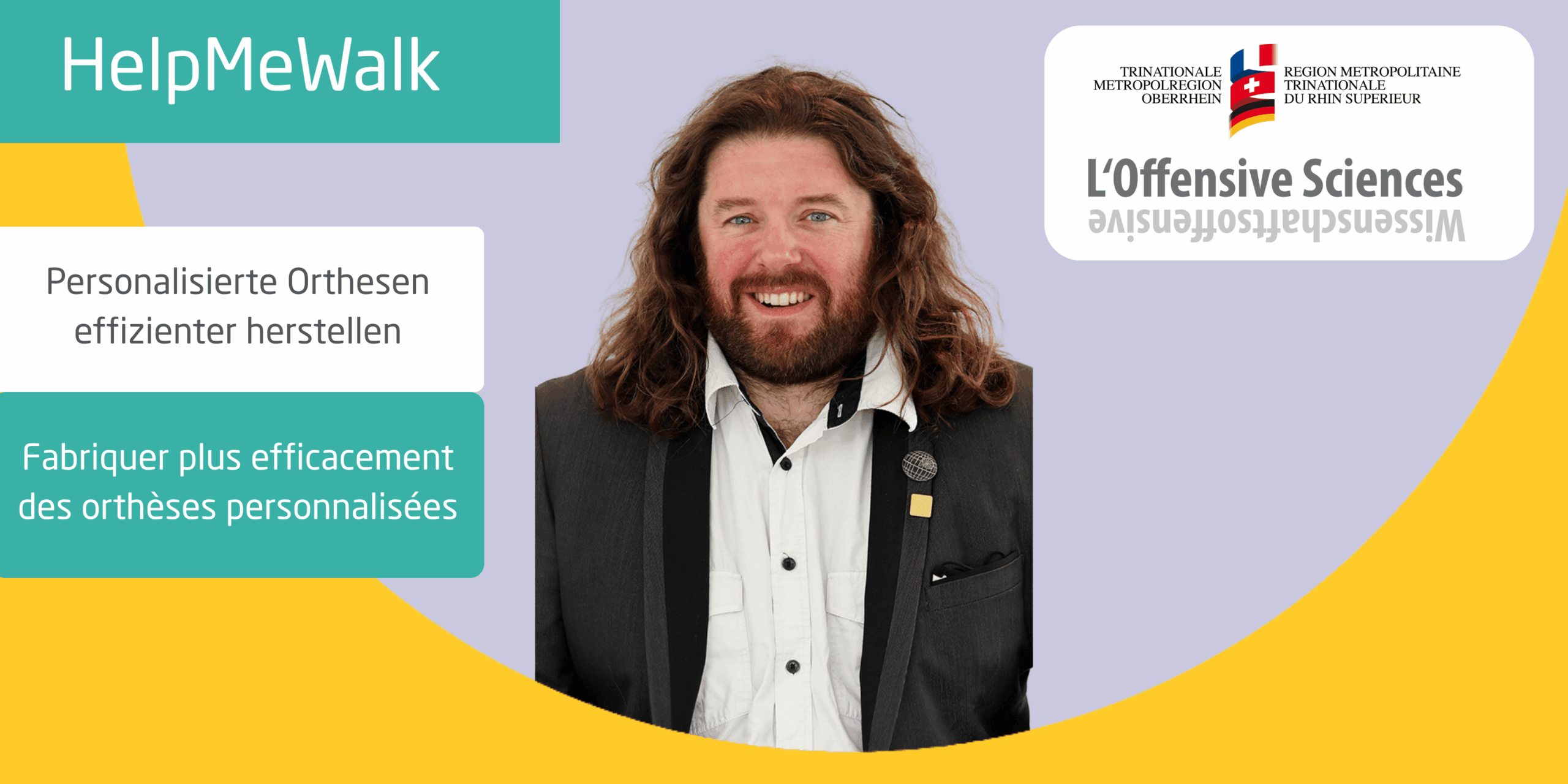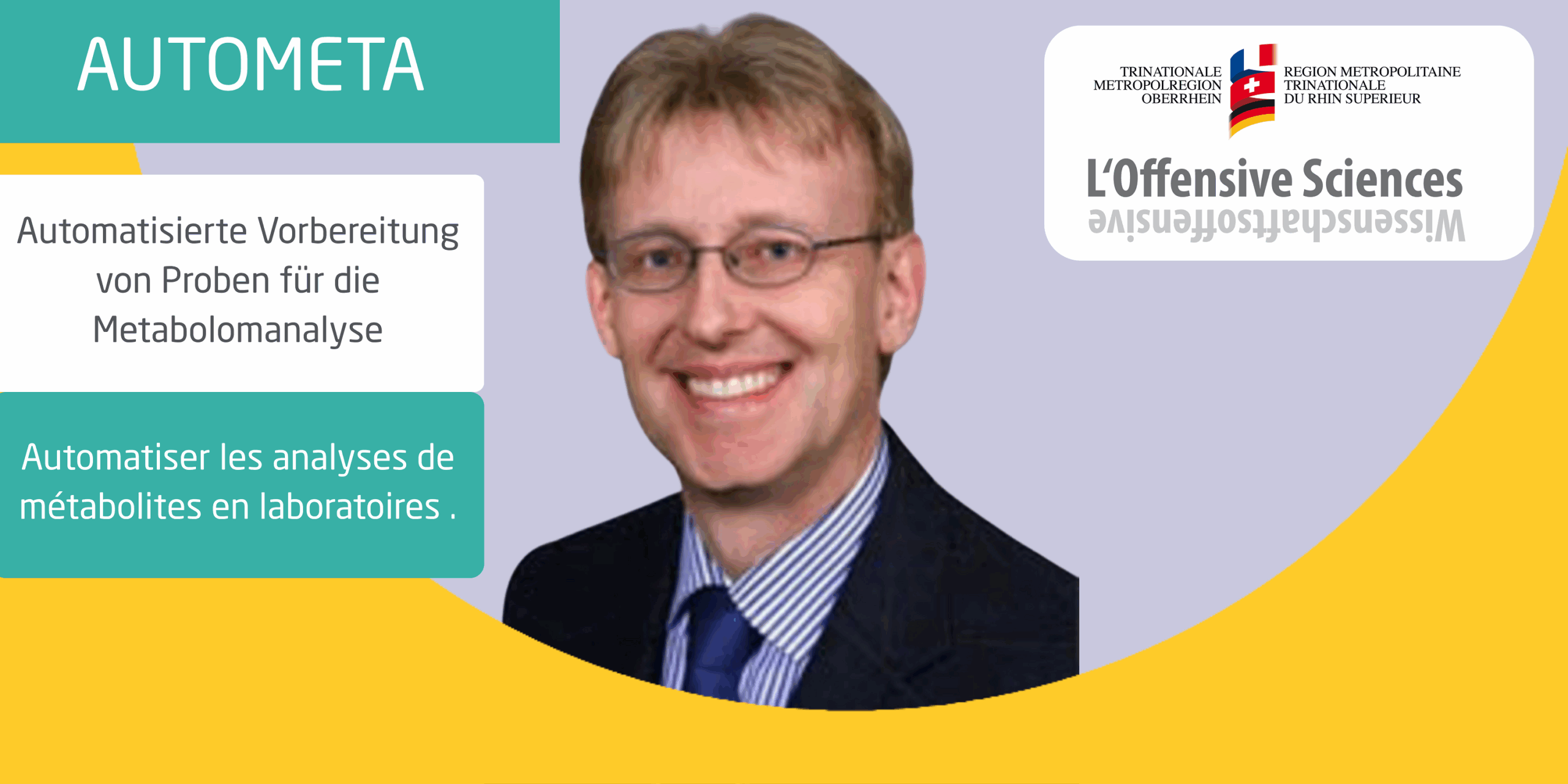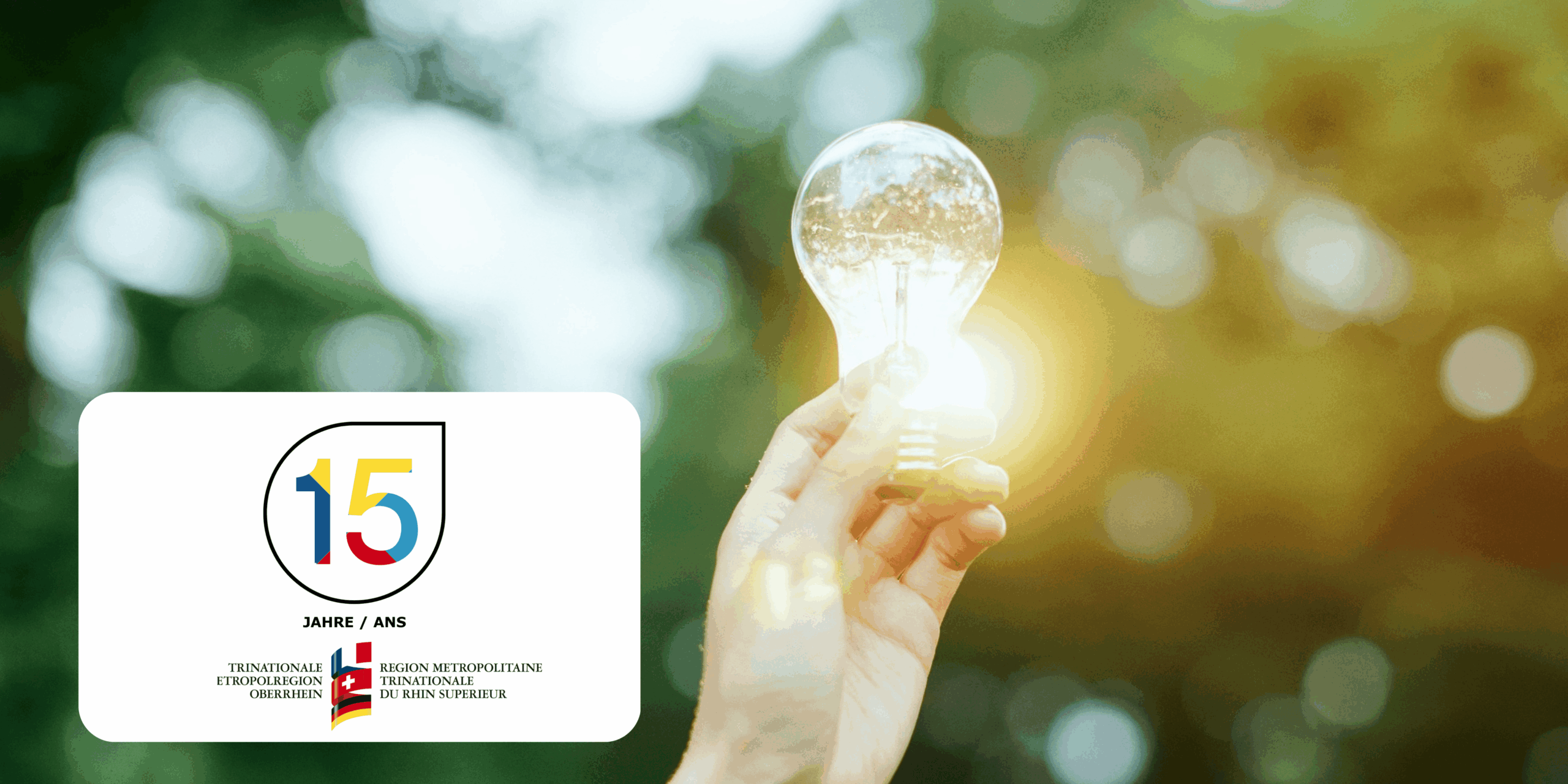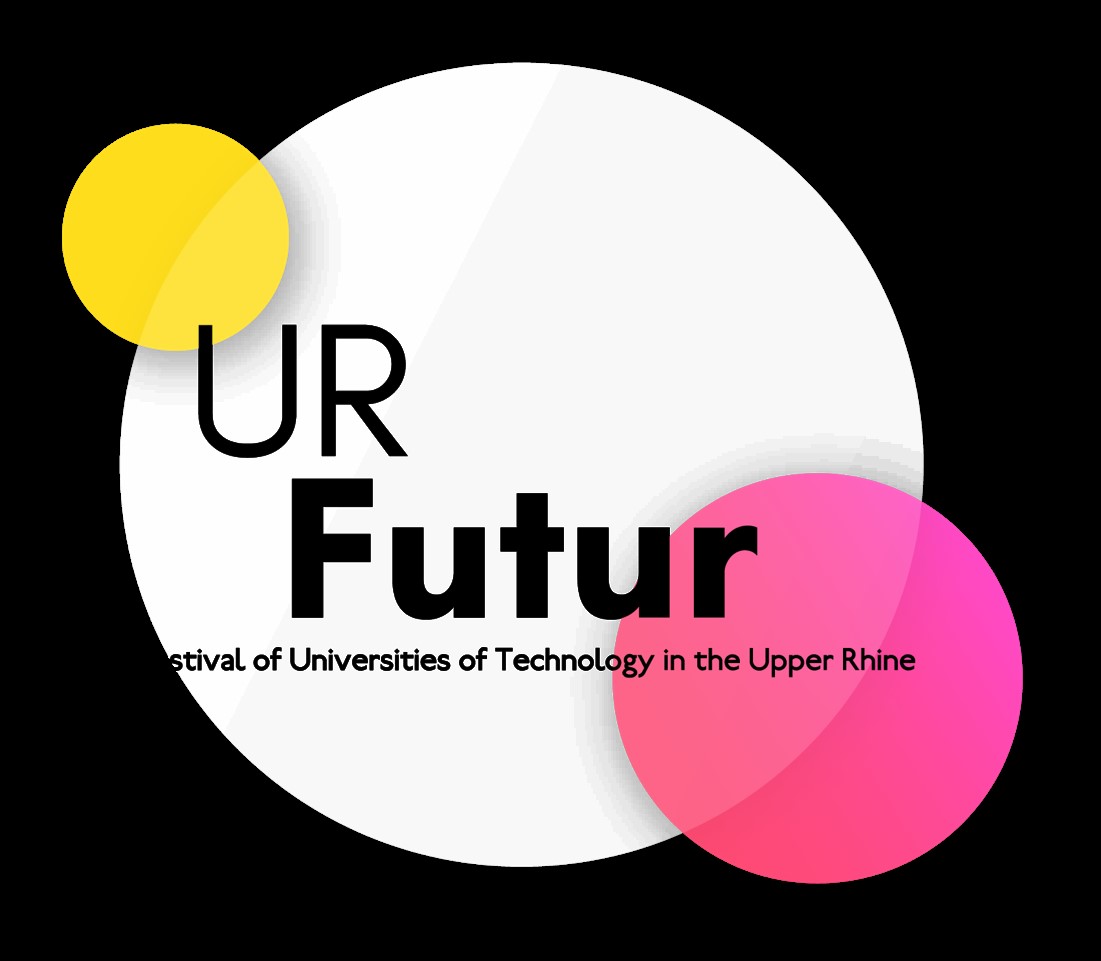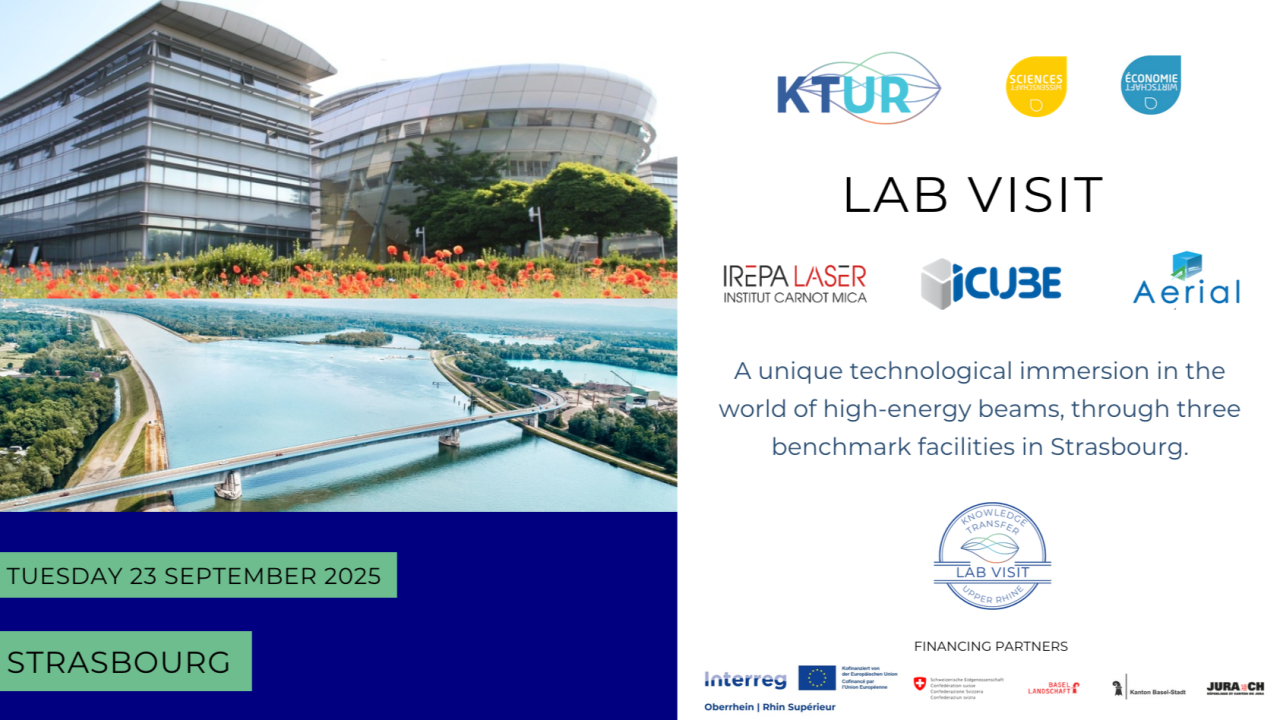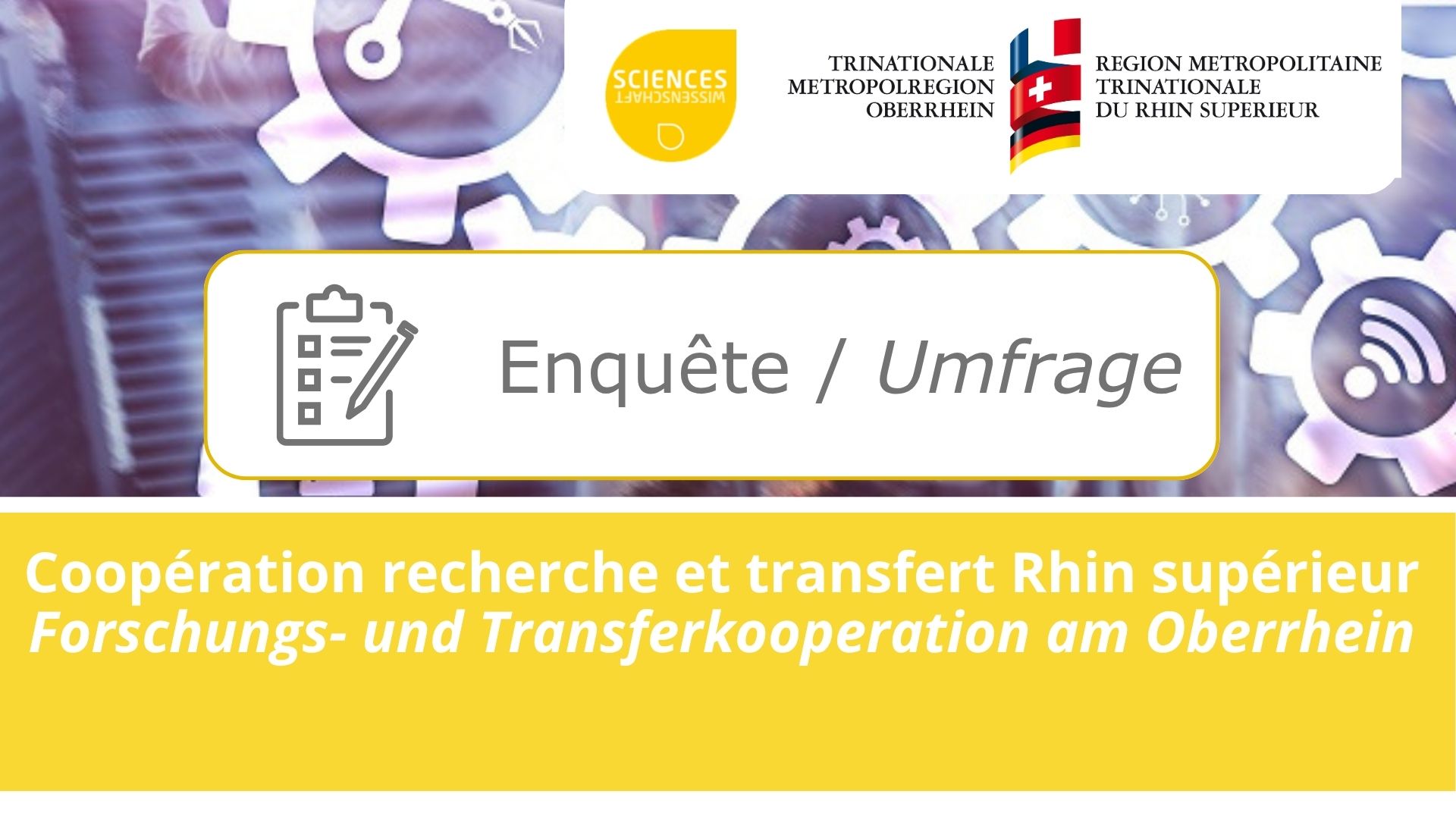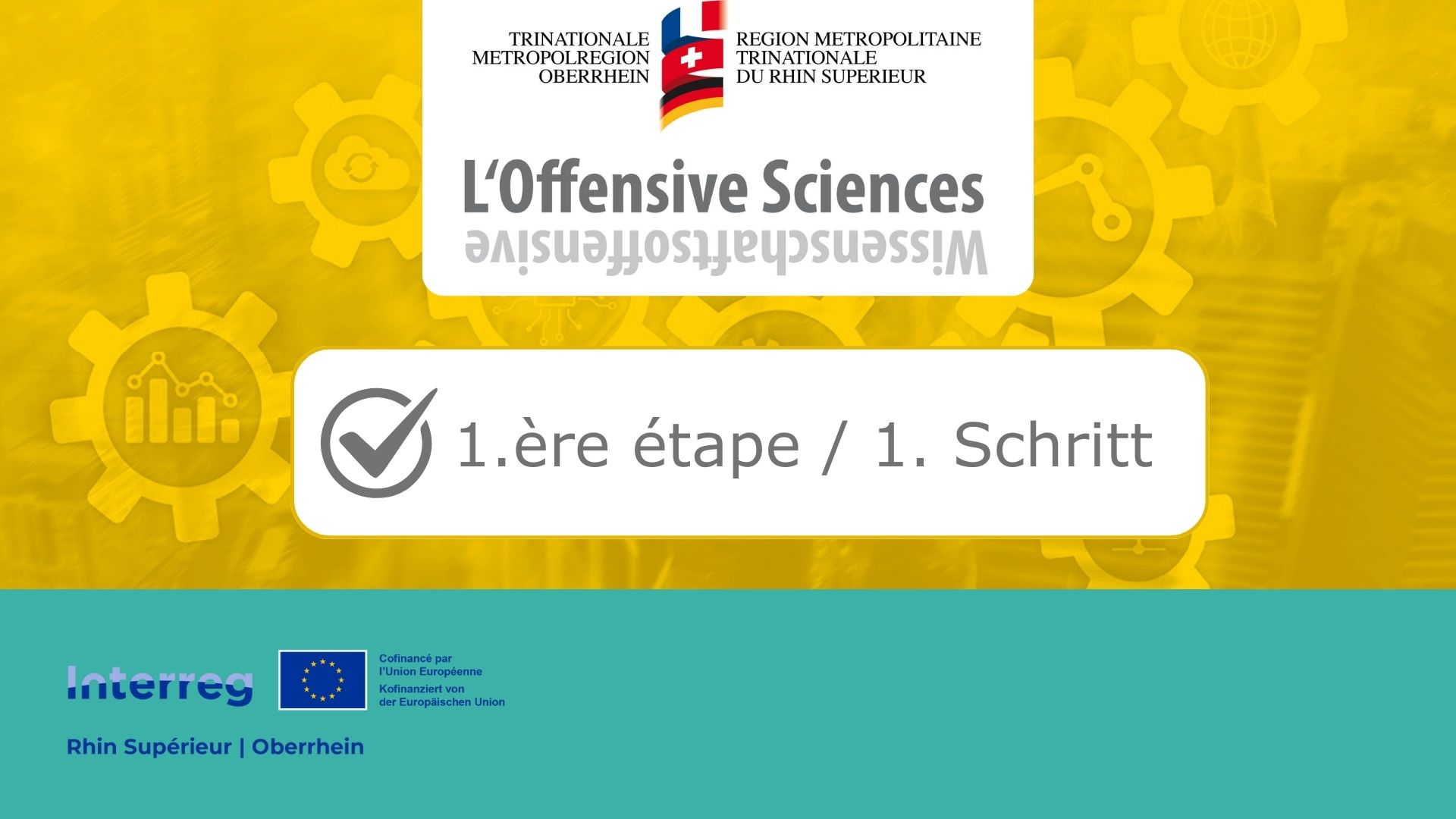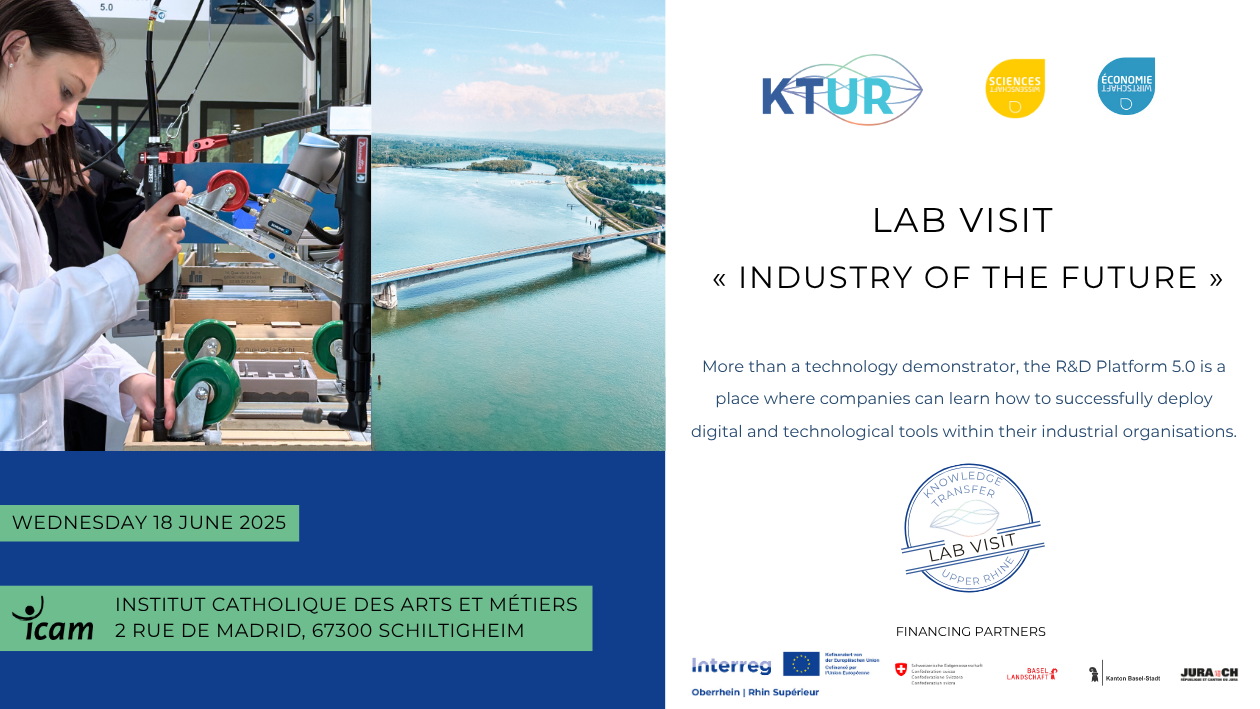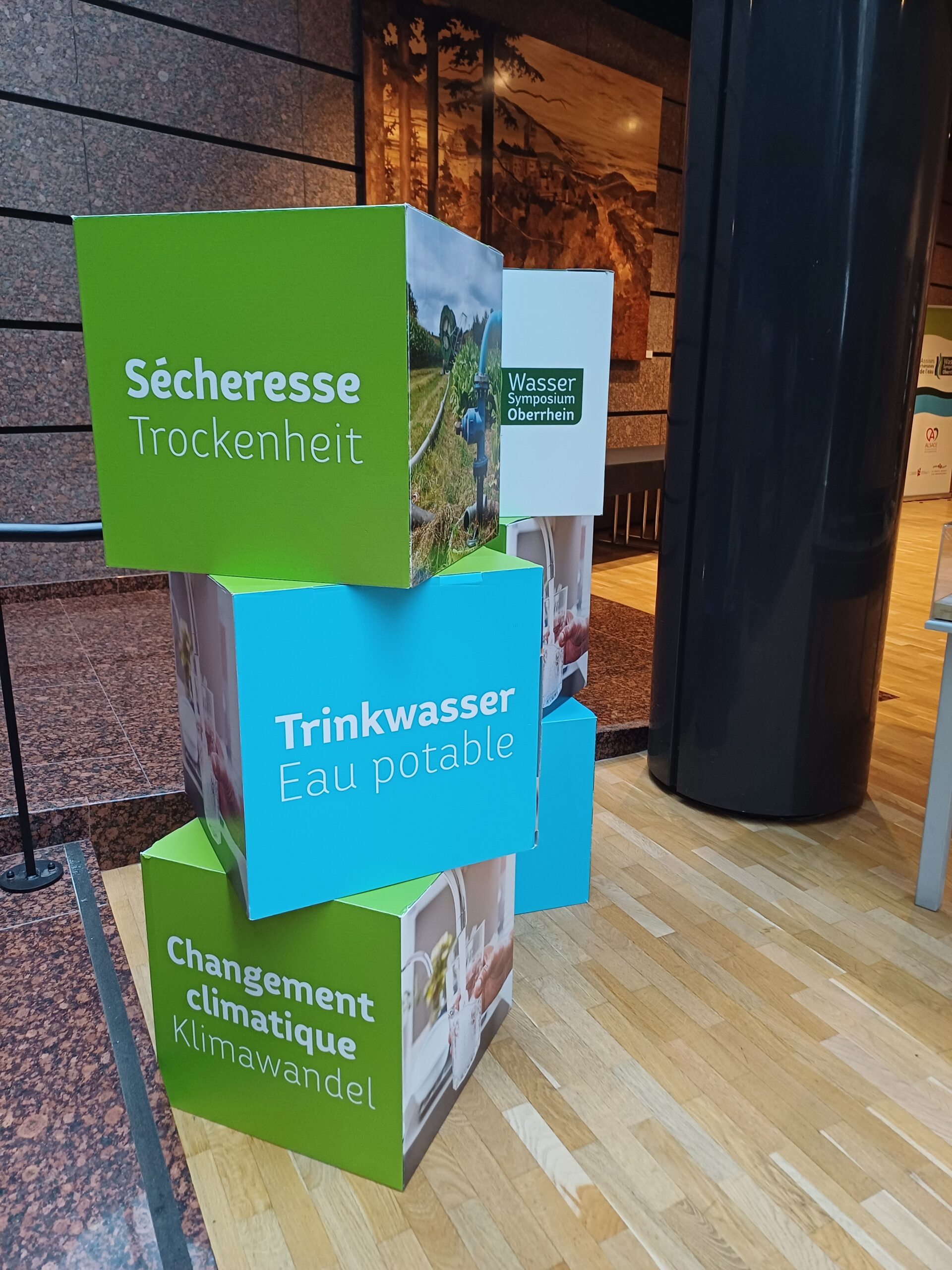Le 13 octobre dernier, dans le cadre de la 22ième édition de la semaine européenne des villes et des régions à Bruxelles, la Région Métropolitaine trinationale du Rhin supérieur (RMT) organisait une table ronde dont l’objectif principal était de mettre en avant la contribution de cette région frontalière aux enjeux européens comme la compétitivité, l’innovation, mais également l’adaptation au changement climatique et la transition énergétique. Les représentants politiques, scientifiques et économiques du Rhin supérieur ont été reçus par Bodo Lehmann, directeur de la représentation du Land de Bade-Wurtemberg à Bruxelles.
Interview : HelpMeWalk, quand l’intelligence artificielle et la coopération transfrontalière réinventent la fabrication des orthèses
Julia Schoppe 9 October 2025Un bandage intelligent permettant la prise de mesures numériques : c’est la solution développée par HelpMeWalk pour fabriquer plus efficacement des orthèses personnalisées. Cette innovation est développée par un consortium trinational, l’Université de Strasbourg, la Fachhochschule Nordwestschweiz, la Hochschule Kaiserslautern, la Hochschule Furtwangen. Les chercheuses et chercheurs s’associent avec des partenaires industriels et des cabinets orthopédiques afin de mettre au point une solution technologique innovante pour la prise de mesures : un bandage intelligent équipé de centaines de capteurs magnétiques. Le Pilier Sciences a échangé avec le porteur de ce projet financé dans le cadre de l’Offensive Science, qui nous parle de la genèse du projet, l’expertise des équipes de recherche impliquées et des avancées que cette technologie apportera tant aux praticiens qu’aux patients.
Interview: Das grenzüberschreitende Projekt Autometa – Musterbeispiel für die Exzellenz des Oberrheins für die personalisierte Medizin
Julia Schoppe 2 October 2025Laborinnovation mit dem Projekt AUTOMETA: Die automatisierte Vorbereitung von Proben für die Metabolomanalyse ermöglicht zuverlässigere Analysen und effektive personalisierte Behandlungen. Diese Innovation wird von einem binationalen Konsortium entwickelt, welches die Universität Freiburg, die Universität Basel und die Hahn-Schickard-Gesellschaft für angewandte Forschung e.V. umfasst. Die Forschenden arbeiten zusammen mit Unternehmen, um eine Lösung basierend auf zentrifugalmikrofluidischen Disks für die Automatisierung der Probenvorbereitung zu entwickeln. Die Säule Wissenschaft hat sich mit dem Träger dieses im Rahmen der Wissenschaftsoffensive finanzierten Projekts unterhalten, der uns über die Entstehung des Projekts, die Expertise der Forschungsteams und die Fortschritte berichtet, die diese Technologie für die Med-tech Unternehmen und für die Patienten bringen könnte.
13.10.2025, Brussel, Event “The Upper Rhine: a European trinational model region for climate protection, renewable energy supply and climate adaptation”
Julia Schoppe 22 September 2025The Upper Rhine region will be presenting itself on 13 October in Brussels at the Representation of the State of Baden-Württemberg. This event, which begins at 5 p.m. and continues into the early evening with a networking cocktail, is part of the official programme of the European Week of Regions and Cities (EWRC) in the category ‘Europe close to you’.
The trinational Upper Rhine border region faces profound challenges in the areas of climate and energy. Climate change is already having a noticeable impact here: heat waves, water shortages and heavy rainfall are putting pressure on agriculture, cities, infrastructure and ecosystems. At the same time, the energy transition requires an accelerated shift towards renewable sources, storage solutions and resilient networks – a task that can only be achieved across borders due to differing national conditions. The strategy for Climate and Energy of the Upper Rhine region sets ambitious targets for partner authorities of the cross-border region and identifies strategic projects, bringing together for their implementation relevant stakeholders at local, regional and national level from politics, science and industry. This initiative aims to strengthen the Upper Rhine’s pioneering role in tackling climate change and promoting the use of clean energy.
5.-8.11.2025 – Straßburg, UR FUTUR – Festival of Universities of Technology in the Upper Rhine
Julia Schoppe 11 September 2025Vom 5. bis 7. November 2025 wird Straßburg zum lebendigen Innovationslabor mit der 1. Ausgabe von UR Futur, welches gemeinsam von TriRhenaTech, dem Zusammenschluss der Hochschulen am Oberrhein, und Alsace-Tech organisiert wird. Dieses einzigartige Festival, das in der Manufacture des Tabacs stattfindet, rückt die Innovationen, die in den Partnerhochschulen entstehen, in den Fokus und präsentiert Technologien, Prototypen und Lösungen, die den Oberrhein von morgen prägen werden.
UR Futur ist ein einzigartiges Format, das Grenzen überschreitet und Talente, Ideen und Kulturen durch vier Highlights miteinander verbindet:
23 September 2025 – Upper Rhine lab visit: come and discover three leading institutions in Strasbourg specialising in laser technologies and processes
Julia Schoppe 28 August 2025As part of BeamXperience Day, the IREPA LASER and Aerial technology resource centres and the University of Strasbourg’s ICube research laboratory are opening their doors to showcase applied research and disruptive technologies in the field of high-energy beams. These unique visits will take place on 23 September, between 2pm and 6pm. An after-work event will give participants the opportunity to chat and strengthen their network.
What you can expect during this afternoon, which will be held in French and English:
Das Jahr 2025 ist ein Schlüsseljahr für die grenzüberschreitende Zusammenarbeit am Oberrhein: die Implementierung der Strategie 2030 der Metropolregion Oberrhein ist auf halbem Wege angelangt, die Planung der verbleibenden Mittel aus dem Interreg VI Oberrhein-Programm für den Programmzeitraum 2021-2028 ist im Gange, und dies zu einer Zeit, wo die Vorbereitung des europäischen mehrjährigen Finanzrahmens und die großen strategischen Themen, die sich daraus ergeben werden, zur Diskussion stehen. Die Säule Wissenschaft führt dieses Jahr auch eine Zwischenbilanz der Umsetzung der Partnerschaftsvereinbarung durch, die die Hochschul- und Forschungsakteure miteinander verbindet.
In diesem Zusammenhang erscheint es uns sehr wichtig, Sie als Akteure der grenzüberschreitenden Zusammenarbeit in den Bereichen Forschung, Innovation und Transfer am, um:
Les projets lauréats du cinquième appel à projets de l’Offensive Sciences sélectionnés en première étape
Julia Schoppe 23 May 2025Le 20 mai dernier dans le cadre du Comité de suivi du programme Interreg Rhin supérieur, la liste des sept projets pré-sélectionnés pour bénéficier d’un co-financement européen (Interreg) et régional (Région Grand Est, Ministères de la recherche des deux Länders allemands de Bade-Wurtemberg et Rhénanie-Palatinat). Les prochaines étapes de soumission pour ces projets vont se succéder dans les mois qui viennent. Ils seront accompagnés par les instructeurs du secrétariat conjoint du programme Interreg. Un atelier spécifique dédié à la communication et la valorisation des résultats des futurs projets sera proposé le 8 juillet, en ligne. Les informations parviendront aux projets concernés.
18 juin 2025 – Lab visit Rhin supérieur : venez découvrir la plateforme Industrie du futur 5.0 de l’ICAM à Strasbourg !
Julia Schoppe 16 May 2025La plateforme R&D « Industrie du futur 5.0 » de l’ICAM, grande école d’ingénieurs française implantée à Strasbourg, ouvre ses portes pour une visite de ses installations et un échange avec l’équipe de recherche le mercredi 18 juin 2025, à 17h. Inaugurée fin 2023, la première plateforme 5.0 du Grand Est est un outil pour les industriels afin d’évoluer vers l’industrie de demain. Elle permet d’accélèrer la performance de la production en combinant les technologies avancées (robotique & cobotique, IA, IoT…), l’optimisation des processus, l’innovation et le digital. Elle place l’humain au cœur de l’innovation.
Assises Rhénanes de l’eau : Vers un usage plus durable de l’eau du Rhin Supérieur
Julia Schoppe 16 April 2025Les 25 et 26 mai, avait lieu la troisième édition des Assises Rhénanes de l’eau, organisées par la CEA, en collaboration avec les Conseil Rhénan et la Conférence du Rhin Supérieur. Cette édition avait pour thème central les « Usages de l’eau », deux aspects étaient particulièrement abordés : les usages agricoles et la protection des milieux. Lors de la deuxième journée, consacrée aux projets de recherche autour de cette thématique, six intervenants appartenant à des Universités du Rhin supérieur et au-delà et du Naturpark Südschwarzwald sont intervenus pour présenter leurs travaux. Le changement climatique et l’adaptation des cours d’eaux aux changements à venir étaient au cœur des discussions.
